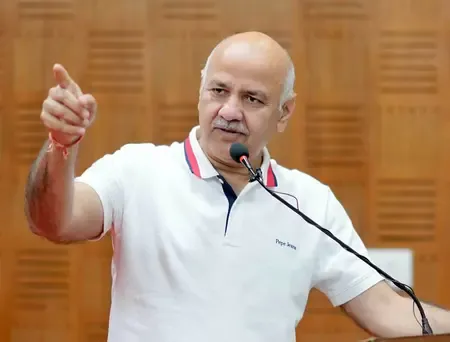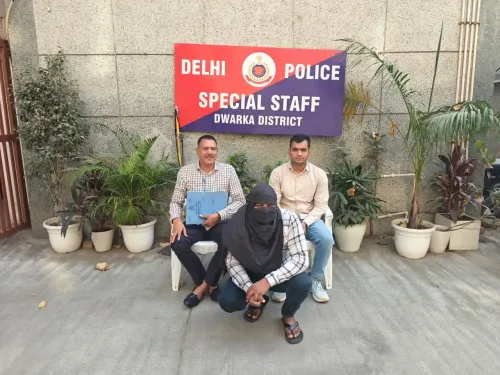Was Delhi's Classroom Scam a Political Vendetta?

Synopsis
Key Takeaways
- Manish Sisodia was interrogated for nearly three hours by the ACB.
- The investigation is focused on an alleged multi-crore classroom scam.
- Accusations include inflated costs for classroom construction.
- Contracts were allegedly awarded to contractors linked to the AAP.
- The AAP maintains that the allegations are politically driven.
New Delhi, June 20 (NationPress) Former Delhi Deputy Chief Minister and Aam Aadmi Party (AAP) figure, Manish Sisodia, faced an extensive interrogation lasting nearly three hours by the Anti-Corruption Branch (ACB) on Friday regarding an alleged multi-crore rupee classroom scam.
Sisodia concluded his session at the ACB office around 2:40 p.m. after arriving for questioning just before noon.
In a robust defense, Sisodia accused the BJP of exploiting investigative agencies for political gain, while the ACB detailed that the scam pertains to inflated expenses in the construction of classrooms and school facilities under the Delhi government.
An official statement from the ACB disclosed, “The case has been lodged under Section 13(1) of the Prevention of Corruption Act, alongside IPC Sections 409 and 120B, which address criminal breach of trust and conspiracy.”
“Sisodia was interrogated in the presence of an independent witness, and his statements were duly recorded. The investigation is ongoing,” stated the ACB.
Earlier this month, the ACB summoned Sisodia and former Health Minister Satyendar Jain, who appeared for questioning on June 6.
The summonses are connected to a First Information Report (FIR) registered by the ACB on April 30, which raises concerns over irregularities in the construction of 12,748 classrooms or semi-permanent structures in government schools.
The ACB claims that the alleged scam involved awarding contracts at inflated prices, with each classroom reportedly costing Rs 24.86 lakh—almost five times the standard cost. Investigators allege that contracts were awarded to 34 contractors, many of whom are linked to the AAP.
Additional allegations suggest that the semi-permanent structures (SPS), expected to last around 30 years, were priced similarly to more resilient Reinforced Cement Concrete (RCC) buildings, which typically last 75 years.
The ACB also reported that an extra Rs 326 crore was added to the project costs without initiating new tenders.
The AAP has consistently rejected these allegations as politically motivated.










